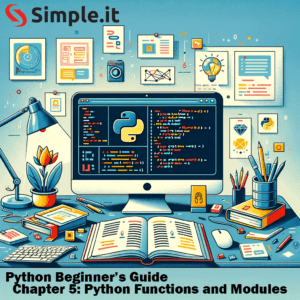Introduction
Welcome to Lesson 3 of our PHP 8 Free Course! As you delve deeper into the world of PHP, having mastered the basic syntax in Lesson 2, it’s time to unveil the power of functions. Functions serve as the building blocks for structuring robust and reusable code, encapsulating tasks into callable units. They enhance code organization, reusability, and readability, forming the cornerstone of effective programming. For a recap of previous lessons or to navigate through the course, visit the PHP 8 Free Course index.
PHP 8 Free Course – Lesson 3: Functions
Enhancing Code Readability with Functions
Functions play a pivotal role in enhancing code readability, a critical aspect that makes code understandable and maintainable. By encapsulating specific tasks or logic within functions, you provide a clear separation of concerns and reduce code repetition. Each function serves as a self-contained unit, representing a particular functionality with a descriptive name. This way, when someone reads the code, they can easily understand the purpose of different parts of the code by just looking at the function names, without getting bogged down by the details of the implementation.
For instance, a function named calculateTotalPrice clearly indicates what it does, making the code self-explanatory. Additionally, functions allow for easy debugging and testing since you can isolate and test individual functions independently. By organizing code into functions, you not only make the code more readable but also set a strong foundation for a codebase that is easy to manage and scale.
Function Definition and Invocation
At the heart of function usage in PHP is the ability to define and call functions. This process of definition and invocation is what empowers the programmer to create modular code.
- Defining a Function:
function greet($name) {
return "Hello, " . $name;
}In this snippet, a function named greet is defined, which takes a single parameter $name. It then returns a greeting string.
- Calling a Function:
echo greet("John"); // Outputs: Hello, JohnHere, the greet function is invoked with the argument "John", resulting in the output Hello, John.
Arguments and Return Values
Diving further, functions can accept multiple arguments, which are specified when the function is called, and return a value to the calling code.
- Passing Multiple Arguments:
function add($num1, $num2) {
return $num1 + $num2;
}In this code snippet, the add function accepts two arguments $num1 and $num2, and returns their sum.
- Returning a Value:
$result = add(5, 10);
echo $result; // Outputs: 15Here, the add function is called with the arguments 5 and 10, and the result is stored in the variable $result, which is then displayed.
Anonymous Functions and Closures
Anonymous functions, also known as closures, are a more advanced yet powerful feature of PHP, allowing the creation of functions without a specified name.
- Defining an Anonymous Function:
$greet = function($name) {
return "Hello, " . $name;
};In this snippet, an anonymous function is created and assigned to the variable $greet. This function can now be used just like any other function.
- Calling an Anonymous Function:
echo $greet("John"); // Outputs: Hello, JohnHere, the anonymous function assigned to $greet is called with the argument "John", resulting in the output Hello, John.
Function Scope and Global Variables
Understanding scope is critical when working with functions. The scope determines the accessibility of variables within your code.
$x = 5; // Global scope
function test() {
$y = 10; // Local scope
global $x; // Access global variable $x
echo $x + $y; // Outputs: 15
}
test();In this snippet, $x is a global variable, while $y is local to the test function. By using the global keyword, $x is accessible within test, allowing the addition operation to proceed.
By mastering the concept of functions, you’re stepping into a realm of programming that fosters modularity and code reuse. Functions form the backbone of organized, efficient, and maintainable code, paving the path for more advanced PHP features.
For further insights into PHP functions, consider exploring the official PHP manual on functions.
Ready for more? Progress to Lesson 4: Arrays and Strings to continue advancing in your PHP 8 Free Course. And as always, for a recap of previous lessons or to navigate through the course, visit the PHP 8 Free Course index.




Pingback: PHP 8 Free Course Index - Simple IT